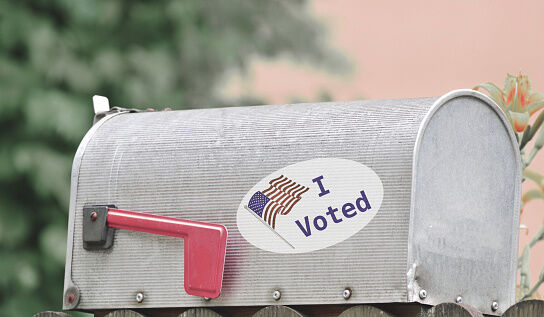PHOENIX — The question of whether millions of Arizonans will lose the right to vote early could turn on whether a judge believes the practice violates anyone’s right of a secret ballot.
At a hearing Friday, a lawyer for the Arizona Republican Party, Alexander Kolodin, argued that letting people vote from home means others could see who they supported.
That violates constitutional requirements that “secrecy in voting shall be preserved,” he contended. He said at-home voting opens the door to people being pressured to vote a certain way or even to selling their votes.
Lawyer Daniel Arellano, who represents the Arizona Democratic Party, did not dispute that people who vote at home are free to share their choices with others, though it was pointed out that voter intimidation and vote-selling already are illegal.
But Arellano said there is a big flaw in the Republicans’ bid to use the privacy issue against the state’s 1991 law allowing no-excuse early voting.
“What they would have to allege and show is that early voting in every single instance would be unconstitutional because it would be impossible to vote early in private,’’ Arellano said.
“That simply is not the case,’’ he said. “People regularly vote an early ballot in private all the time.’’
An attorney for Secretary of State Katie Hobbs, meanwhile, pointed out the state GOP is not claiming that the fact some people can vote early precludes its own members from voting in private. In fact, state GOP Chair Kelli Ward, a plaintiff in the lawsuit, voted early in the 2020 election.
What’s going on here is the reverse of protecting the right to vote, said Hobbs’ attorney, Roopali Desai. “Their request is to make voting more difficult, to limit voting, to make it so less people have opportunity to vote,’’ she said.
Arellano told the judge, “”Nobody is forced to vote an early ballot,’’ as Arizona is not one of those states where all ballots have to be cast by mail. People remain free to go to the polls for whatever reason they want.
That now leaves the question of whether Arizonans who like to vote early — there were close to 3 million of them in the 2020 general election, about 88% of those who cast ballots — will have that ability this November.
The judge, Mohave County Superior Court Judge Lee Jantzen, has promised a ruling on Monday.
Arizona has allowed some form of early voting for more than a century, encompassing everyone from those in the military and those not in the county on Election Day to people who are infirm or at least 65 years old.
Republicans are not challenging those statutes. Instead, what the party wants repealed are laws that have been on the books since 1991 that permit anyone to request an early ballot.
Voiding the law would do more than affect the vast majority of Arizonans who like voting by mail. There also are potential political implications.
In the 2020 presidential race in Arizona, Republican Donald Trump outpolled Democrat Joe Biden by nearly 124,000 votes among those who went to the polls. But Biden gained almost 139,000 more votes among early voters than Trump.
During Friday’s arguments, Kolodin did not address the popularity of the practice or how it might affect future voter turnout. He urged the judge to focus on what could go wrong.
“The fundamental thing about mail-in voting is it’s virtually impossible to catch bad actors,’’ he said.
Kolodin did cite one example for Jantzen, the criminal charges brought against Guillermina Fuentes, a former San Luis mayor, who agreed this past week to plead guilty to gathering and, in some cases, filling out the ballots of others during the August 2020 primary election.
But Arellano noted during the hearing that the GOP’s legal bid to kill virtually all early voting contains no actual allegations of fraud in the practice.
Attorney Karen Hartman-Tellez, who represents 13 of the state’s 15 counties, told Jantzen that before he decides whether to kill early voting he needs to consider the effects it would have, especially if his order were to apply to this year’s general election.
She said counties spend a year or more coming up with voting locations. If early voting is not an option, Hartman-Tellez said, that means scrambling to find not just many more sites that have to meet the requirements of the Americans with Disabilities Act — she thinks the need would multiply by a factor of six — but also finding more poll workers and election equipment.
“Elections officials are fantasic problem solvers,’’ she said. “But they are not magicians. They cannot conjure polling places or poll workers out of nothing.’’





